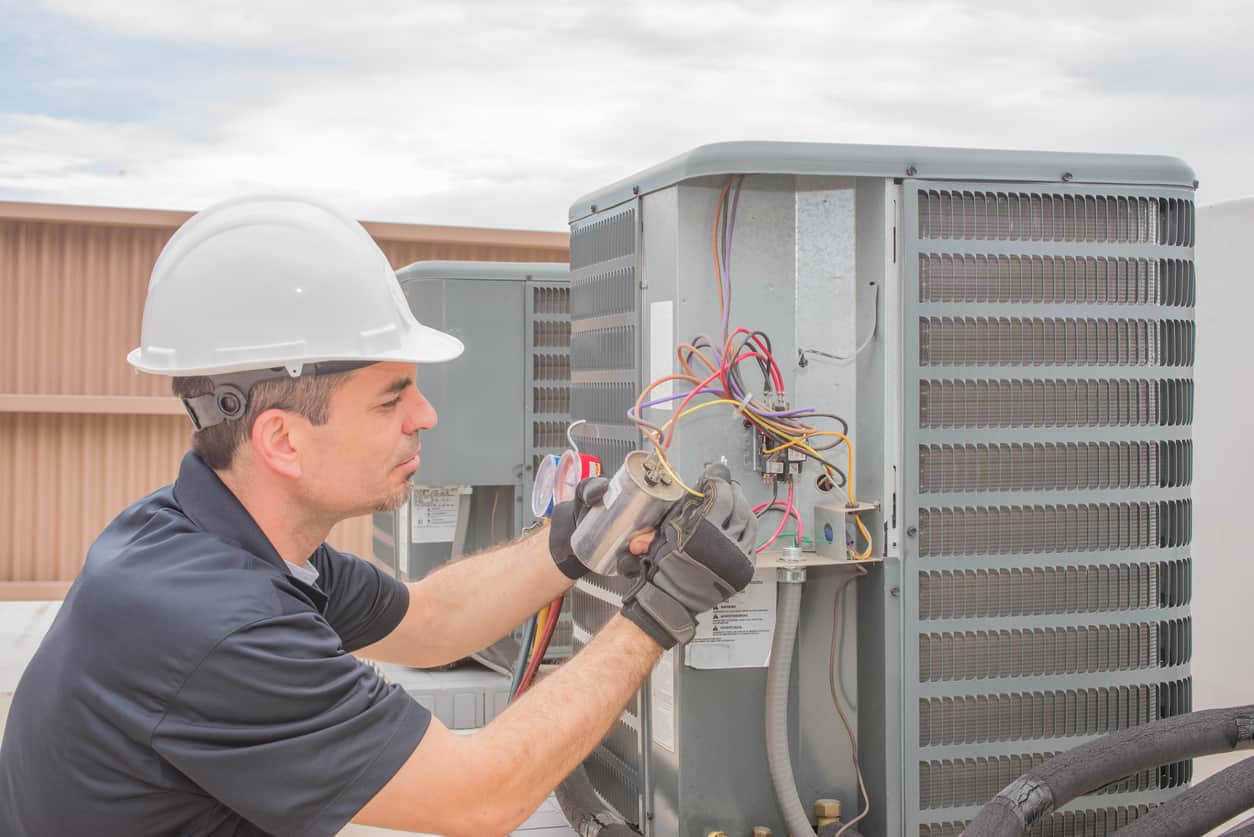Air conditioners prove to be a godsend during the hot summers. However, when an AC unit unexpectedly malfunctions, it could be due to a damaged capacitor. The capacitor is one of the essential components of AC that stores and releases electrical energy to power the compressor and fan motors. With time, capacitors may weaken, and if not addressed, they can lead to a complete AC system breakdown.
To help you stay informed about any capacitor-related issues, we at Hurliman Heating have curated a comprehensive list of eight warning signs you should be mindful of. By being vigilant of these signs, you can address the issue swiftly before it causes further damage to your HVAC system. Additionally, you will also get information about some helpful tips to prevent capacitor failure in the future.
8 signs that can tell you if your AC capacitor is not working properly
It is needless to say that the capacitor is a very vital part of an Air Conditioner, and its breakdown can lead your AC to trip. However, the following are a few signs that can let you know beforehand if your AC capacitor is acting up.
Reduced cooling capacity
If your AC unit isn’t keeping your home as cool as it used to, the capacitor could be the one to blame. A bad capacitor will prevent the compressor from starting, resulting in reduced cooling capacity and a less comfortable indoor environment.
AC won’t start at all
A malfunctioning capacitor can hinder the starting of the air conditioning unit. The telltale sign of such a malfunction is a humming sound from the system when switched on, but the fan does not spin. It indicates that the capacitor impedes the compressor from initiating the cooling process.
Constant tripping of circuit breaker
A malfunctioning of a capacitor in your air conditioning system can lead to repeated circuit breaker tripping. It occurs when the capacitor causes the AC unit to draw an excessive amount of current, causing an overload in the circuit and triggering the circuit breaker. This safety mechanism is intentionally designed to prevent electrical fires and protect your home and family members from harm.
The AC fan isn’t working
Your AC fan requires a kickstart from the capacitor to get going. So if it’s not working, the capacitor may be at fault. If this is the reason, you may hear the compressor running, but the fan won’t turn on. It can result in increased energy bills and reduced system cooling efficiency.
Strange noises
Strange noises from your AC unit, like humming, buzzing, or clicking could indicate that the capacitor is struggling to start the compressor. A malfunctioning capacitor can also cause bulging or leaking, which is hazardous and requires immediate replacement.
High energy bills
A sudden spike in your energy bills could indicate that the capacitor is not functioning correctly, and prompt attention is necessary to prevent further issues and higher costs. Faulty capacitors can cause the AC unit to work harder than required to start the fan, leading to increased energy bills.
Short cycling
If your air conditioner frequently turns on and off more than it should, it is short cycling. Short cycling can also result from a faulty capacitor, which may not provide enough power to keep the compressor running continuously. Therefore, short cycling can lead to unnecessary wear and tear on your AC unit.
Capacitor lifespan
Most AC capacitors can last for about ten years. Beyond that, they may start acting up and cause various troubles. So, if your AC unit is older than ten years or older, you may encounter various issues. Besides, there’s a good chance that most of these issues are due to a faulty capacitor.
Therefore, having your AC capacitor checked and replaced by a professional and reliable HVAC technician is essential.
5 ways to prevent AC capacitor failure
Capacitor failure can lead to costly repairs or replacements. However, several simple ways exist to prevent capacitor failure and keep your AC system running smoothly in the long run. Some of them are listed hereunder.
Regular maintenance
The best way to keep your AC unit from malfunctioning is regular maintenance of your HVAC system. Along with the capacitor, it will prevent your entire AC unit from failing prematurely. Therefore, it is recommended that you hire a licensed HVAC technician to perform an annual check-up of your AC system, including testing the capacitor to ensure it is functioning properly.
Keeping the outdoor unit clean
The outdoor unit of your AC is highly prone to accumulation of dirt and debris as it is exposed to many such elements. Therefore, keeping the outdoor unit clean becomes vital to prevent the capacitor from overworking and overheating, and failing prematurely. Ensure to clear any kind of dust, leaves, or twigs away from the outdoor unit regularly.
Examine the voltage supply
If the voltage supply to the AC system is too high or too low, it can cause damage to the capacitor. It can be prevented by using a multimeter to check the voltage at the electrical panel and ensure it is within the manufacturer’s recommended range.
Replace the capacitor when needed.
Capacitors have a limited lifespan and will eventually need to be replaced. So, if you experience anything unusual about your AC unit, you should get your capacitor, and other vital parts checked as soon as possible. It is best to have a licensed HVAC technician perform this work to ensure it is done safely and correctly.
Get your AC capacitor checked and replaced without any hassle!
If you suspect your air conditioning capacitor is failing, the most sensible thing to do is call an HVAC specialist like Hurliman Heating. Our highly experienced and skilled HVAC technicians at Hurliman Heating can provide you with the perfect solution for any issue with your AC unit, including capacitor repair and replacement. So, next time you face a problem with your AC unit, remember to schedule an appointment with the experts at Hurliman Heating. The highly qualified and experienced HVAC technicians at Hurliman Heating are available 24 hours a day throughout the week.





